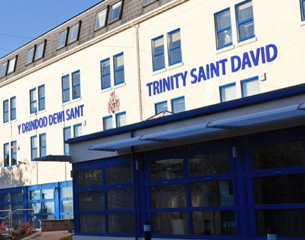More than 18 male employees have won an equal pay case against the University of Wales Trinity Saint David.

The support staff, which includes plumbers and caretakers, took the university to an employment tribunal on the grounds of sexual discrimination after discovering female colleagues on the same pay grade were being paid more.
The employees claimed back pay of more than £700,000 after claiming they had been underpaid an average of £4,000 a year since 2007. They demanded a pay rise to bring wages in line with their co-workers.
The men now expect to share more than £500,000 after the university’s legal team told the hearing in Cardiff on 23 April that it would no longer contest the claim.
According to the University of Wales Trinity Saint David, the difference arose due to working hour changes in the mens’ contracts prior to the university’s merger with the now defunct Swansea Metropolitan University in 2013.
The tribunal arose from the implementation of the National Pay Modernisation Review in 2006/2007 which was agreed at a UK-wide level between the higher education sector and trade unions.
The review consisted of a job evaluation exercise and the movement towards a harmonisation of terms and conditions for all UK higher education staff, which included adopting a standard 37-hour week. Concerns were raised to Swansea Metropolitan University by Unison on behalf of those members employed as ancillary staff who, at the time, worked a 45-hour week and who Swansea Metropolitan University understood were concerned at the effect a reduction in their working hours would have on their pay.
Unison, on behalf of its members, and Swansea Metropolitan University agreed a way forward that would allow the ancillary employees to transfer onto the standard 37-hour week agreed nationally but to continue to work 45 hours per week by guaranteeing to make available to the ancillary staff an extra eight hours each week overtime, which would be paid at an enhanced rate.
A university spokesperson said: “We came to the view that the original claim presented by staff to the former Swansea Metropolitan University had due merit and, as a result, an appropriate remedy should be agreed and actioned.
“The employment tribunal related to events that occurred more than seven years ago at the now dissolved higher education corporation Swansea Metropolitan University and several years before its merger with the University of Wales Trinity Saint David, which took place in 2013.
“The University of Wales Trinity Saint David had no involvement in the decisions that were made by Swansea Metropolitan University in 2007. This was a complex case and we are very disappointed that the new university now has to deal with, in an appropriate manner and with due care, the consequences of historical decisions.”
Matthew Kelly, partner and employment specialist at law firm Thomas Eggar, added: “This case has only served to highlight the risks associated with equal pay and the fact that if group cases are brought and are successful, then it could not only be potentially expensive for this particular academic institution concerned but also open the floodgates for claims in other institutions.
“It, therefore, seems that no public sector employer will be immune from the wrath of equal pay.”